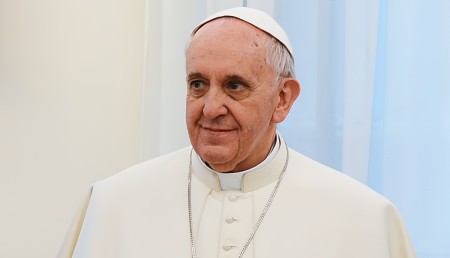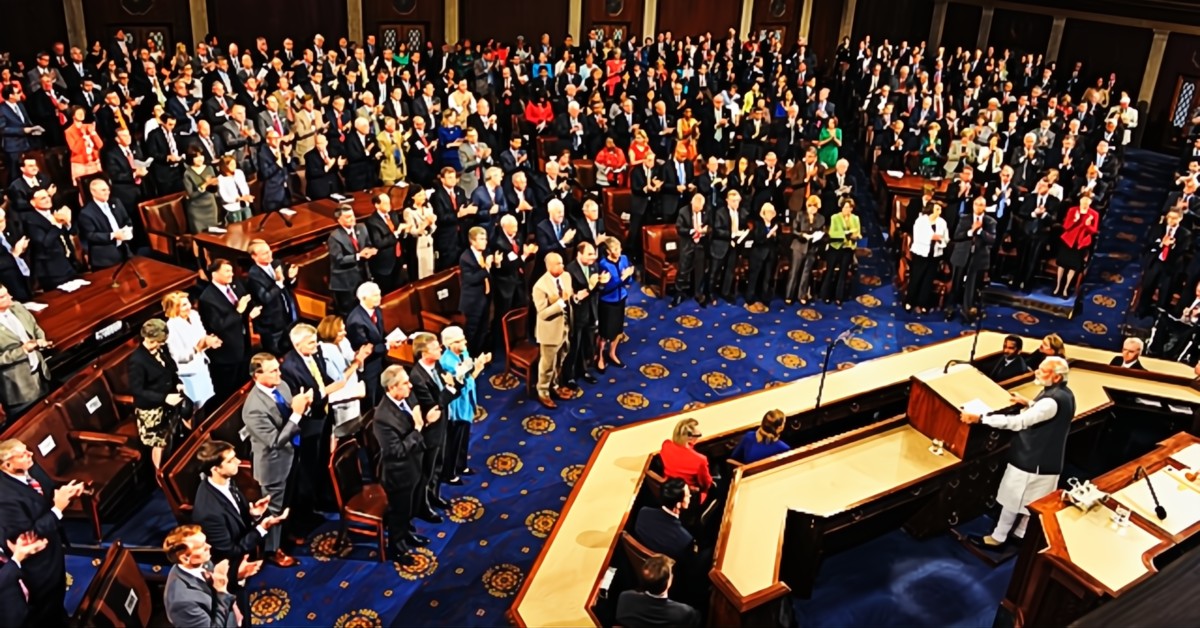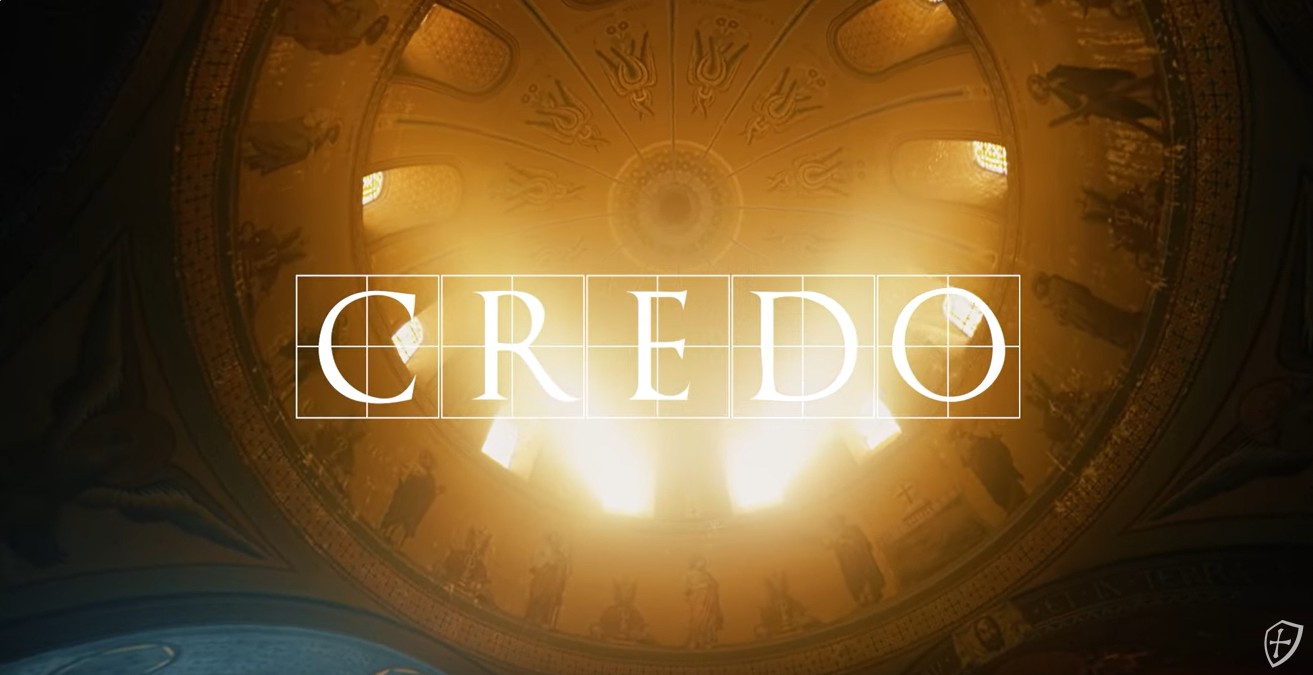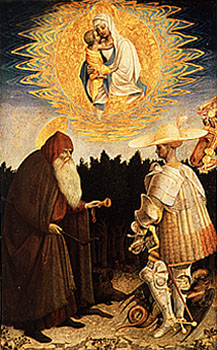We ask you, urgently: don’t scroll past this
Dear readers, Catholic Online was de-platformed by Shopify for our pro-life beliefs. They shut down our Catholic Online, Catholic Online School, Prayer Candles, and Catholic Online Learning Resources—essential faith tools serving over 1.4 million students and millions of families worldwide. Our founders, now in their 70's, just gave their entire life savings to protect this mission. But fewer than 2% of readers donate. If everyone gave just $5, the cost of a coffee, we could rebuild stronger and keep Catholic education free for all. Stand with us in faith. Thank you.Help Now >
Christians and Muslims Resume Dialogue
FREE Catholic Classes
November 4-6, Islamic and Catholic experts are meeting at the Vatican, after years of chilly relations due to the growth of fundamentalism.
Highlights
BEIRUT (AsiaNews) - From November 4-6, 25 Catholic scholars and 25 Muslims will meet at the Vatican to study the possibilities for collaboration between the two largest religions in the world: 1.4 billion for the Muslims; 1.18 billion for the Catholics. The representatives of more than one third of the planet will meet on the theme of "Love of God and love of neighbor." On the first day, they will address theological-spiritual themes; on the second day, they will turn to "Human dignity," exploring issues related to human rights, religious freedom, religious respect, possibly alluding to the freedom to convert and change religions.
The general theme emerged over the past two years, not without some difficulty. After Benedict XVI's address in Regensburg on September 12, 2006, the Muslim world reacted with violence and rejected the pope's proposal to recognize that the relationship with God implies reason and excludes violence. Many of the reactions were due to ignorance of the address, and familiarity only with what was reported (often in a distorted manner) by press agencies and newspapers.
Thanks to the Regensburg address, 38 Islamic scholars sent an initial response letter (October 13, 2006), and a second letter one year later (signed by 138 scholars, later expanded to 275) in order to seek out common ground of collaboration between Christians and Muslims.
In turn, on November 19, 2007, Benedict XVI responded to the letter of the 138 by opening a possible collaboration in various areas. On December 12, 2007, a letter to Cardinal Bertone from Jordanian prince Ghazi bin Muhammad bin Talal agreed to the collaboration. On March 4-5, personalities of the Vatican curia and of the Islamic world met to establish the procedures and content of this dialogue. At the conclusion, the two sides announced the creation of a Catholic-Islamic forum "to develop dialogue between Catholics and Muslims." It is precisely this forum that is meeting for the first time in Rome from November 4-6. On the 6th, the group will have an audience with Benedict XVI. One of the participants in the meeting is Fr. Samir Khalil Samir, who offers us this analysis.
This encounter between Muslim and Catholic experts in November is a start, and is a positive for the mere fact that it is being held: dialogue is better than indifference and reciprocal silence. In recent years, an important change has taken place. At first, the letters from the Muslim scholars requested a dialogue that would be exclusively, let us say, theological. But this ran the risk of being unproductive. The Holy Father and Cardinal Tauran stressed that dialogue would have to include the problems of daily life and the rights of conscience. One of the Muslim participants, Tariq Ramadan, agreed on this point.
Christians and Islam obstructed by fundamentalism
The relationship between Christians and Muslims has had a tumultuous history. During the 1960's, after Vatican Council II, there was a strong push from the Catholic side. There was also significant, sincere openness on the part of Muslims. Then two things happened:
a) with time, dialogue is extinguished if it is not supported by a permanent structure. The dialogue with the Orthodox and with other Christian confessions is regular: we meet every year, there are mixed commissions . . . With Islam, on the other hand, it has depended on the circumstances: sometimes the leaders have wanted it, other times they haven't . . .
b) the second reason is that during the 1970's, the wave of fundamentalist movements began, with the Islamic world itself being the first to suffer. This development blocked everything, because its stance is rejection of the other [1]. The position of the Salafis is, on many points, in opposition to modernity and to the West that is its origin; this has led to a diminution of dialogue.
It is worth noting that this resumption is due precisely to the address in Regensburg. And this is acknowledged by some Islamic experts as well [2]. The pope's address was the beginning of a new movement of rethinking. If it prompted a positive response, this is because he spoke truth, and without hatred. This confirms that if there is no truth in dialogue, it produces nothing.
The way forward
About fifty people will participate in the forum, in equal numbers, although the names have not been published. But already it is possible to sketch some perspectives for opening a collaboration. I think that we can take many steps forward. But the many points of misunderstanding and friction must be confronted with tranquility and sincerity.
If we talk about dogmas, we must clarify the Christian position on Islam, the Qur'an, and the person of Mohammed, seeking to understand their position and telling them what we believe and why. On the Muslim side, it is important that they clarify the significance of our faith in the Trinity, in the incarnation of the Word, the unity of God, etc., in order to avoid launching false accusations. But if the accusations are true, we must change.
In the West, there has been controversy over the opening of Islamic schools or mosques. But this is not a problem that concerns Islamic-Christian dialogue. Prohibitions or bans come from the secular state, and are not intended to defend Catholics. The problem here is of agreeing on what a place of worship is, which must not be confused with a place of militancy and struggle. The state must clarify what the characteristics of these places must be, and if anyone breaks these rules, it must have the authority to take away this right.
The same is true of the schools. In France, for example, there are rules that the state imposes in order to recognize any school, including Islamic ones. These norms must now be clarified. Until now, the need for this was not felt, because there was an obvious common foundation. But now, with our pluralist and globalized society, this clarification must be made. For example, the state must specify whether it is the government that grants the land for the building of places of worship or not; whether or not it is permitted to pray in the street . . .
I do not know how fruitful this dialogue can be: the considerable number of participants (more than 50 in all) brings the risk that the discussions may not be deep or productive.
Religious freedom
Both religions claim to bear a message of truth, and are called to proclaim it and spread it in mission. But the ways in which this is to be done must be specified. Using means unworthy of religion, or that are prohibited, must be excluded. The Muslims, for example, accuse the Christians of conducting proselytism by doing "favors" for the poor, and asking for conversion in exchange. But it is unjust to block advancement while permitting a religion to spread. The idea that is promoted in the Muslim world, "the truth has all rights, falsehood has no rights," is also unjust. On the basis of this, the possibility for non-Islamic religions to spread is practically excluded [3]. To this is connected the disdain toward apostates - as happened with the baptism of Magdi Cristiano Allam - who are viewed as traitors, instead of seekers of truth. Having schools is also important for both religions, and therefore this right must be defended, and must not be denigrated as proselytism.
Conclusion
My impression is nonetheless that this dialogue can be fruitful if it respects three dimensions:
1) It must begin, and continue for years;
2) At the end, concrete, and documents must be drawn up, and distributed as widely as possible;
3) Maximum authority must be given to these documents. This is easy on the Catholic side: it is enough for a cardinal or another authority to sign it. On the Muslim side, there must be agreement among religious personalities and Islamic politicians. The laws that limit religious freedom are made by Islamic governments, not by Muslim scholars. Everyone who participates in this dialogue, in returning to his country, must reach out to his government and other Muslim associations. Furthermore, the decisions that depend on states should be voted on by the "Organization of the Islamic Conference." For this not to happen would be a discouragement. The authority of the document is important.
But the first and most urgent need is for religious freedom: the right of every religion to preach and to spread itself through legitimate and licit means, and not with illicit means, which must be enumerated. This is a spiritual principle - because it touches on the dignity of man - and also a theological principle, because it touches on the principle of man created in the image of God, free and therefore free to make mistakes. I hope that this meeting will soon result in a joint document on religious freedom.
-------------------------------------
[1] From this point of view, it is worth pointing out that dialogue does not mean "putting one's own beliefs aside." We Catholics, even if we believe that the Catholic Church bears the truth, also believe that there are seeds of the Word, of truth, in other positions as well.
[2] See Tarik Ramadan: "After causing a wave of shock, the words of Pope Benedict XVI in Regensburg two years ago have doubtlessly had more positive than negative consequences over the long term. Beyond the controversy, this conference prompted an examination of the nature of the respective responsibilities of both Christians and Muslims in the West." Cf. Il Riformista, October 31, 2008.
[3] Every day in the Muslim world, we see the Muslim faith proclaimed (on the radio, television, in newspapers, with megaphones from the mosque), but a Christian cannot even wear a cross, because "the spreading of falsehood" is forbidden.
Join the Movement
When you sign up below, you don't just join an email list - you're joining an entire movement for Free world class Catholic education.

-

-
Mysteries of the Rosary
-
St. Faustina Kowalska
-
Litany of the Blessed Virgin Mary
-
Saint of the Day for Wednesday, Oct 4th, 2023
-
Popular Saints
-
St. Francis of Assisi
-
Bible
-
Female / Women Saints
-
7 Morning Prayers you need to get your day started with God
-
Litany of the Blessed Virgin Mary
Pope Francis Suffers Fall: A Look at Papal Health and Succession
-

The Erosion of Civility in Congressional Hearings: A Call for Professional Decorum
-

Bishop Strickland and Others Defend Apostolic Tradition in New Documentary on the Church's Enduring ...
-
At Least 25 Dead as Wildfires Continue to Rage Across Los Angeles, Arson Investigations Underway
-
Australian Woman Charged with Torture After Exploiting Child for Donations
Daily Catholic
 Daily Readings for Friday, January 17, 2025
Daily Readings for Friday, January 17, 2025 St. Anthony the Abbot: Saint of the Day for Friday, January 17, 2025
St. Anthony the Abbot: Saint of the Day for Friday, January 17, 2025 Prayer for a Blessing on the New Year: Prayer of the Day for Tuesday, December 31, 2024
Prayer for a Blessing on the New Year: Prayer of the Day for Tuesday, December 31, 2024- Daily Readings for Thursday, January 16, 2025
- St. Fursey: Saint of the Day for Thursday, January 16, 2025
- St. Theresa of the Child Jesus: Prayer of the Day for Monday, December 30, 2024
![]()
Copyright 2024 Catholic Online. All materials contained on this site, whether written, audible or visual are the exclusive property of Catholic Online and are protected under U.S. and International copyright laws, © Copyright 2024 Catholic Online. Any unauthorized use, without prior written consent of Catholic Online is strictly forbidden and prohibited.
Catholic Online is a Project of Your Catholic Voice Foundation, a Not-for-Profit Corporation. Your Catholic Voice Foundation has been granted a recognition of tax exemption under Section 501(c)(3) of the Internal Revenue Code. Federal Tax Identification Number: 81-0596847. Your gift is tax-deductible as allowed by law.








 Daily Readings for Friday, January 17, 2025
Daily Readings for Friday, January 17, 2025 St. Anthony the Abbot: Saint of the Day for Friday, January 17, 2025
St. Anthony the Abbot: Saint of the Day for Friday, January 17, 2025 Prayer for a Blessing on the New Year: Prayer of the Day for Tuesday, December 31, 2024
Prayer for a Blessing on the New Year: Prayer of the Day for Tuesday, December 31, 2024

